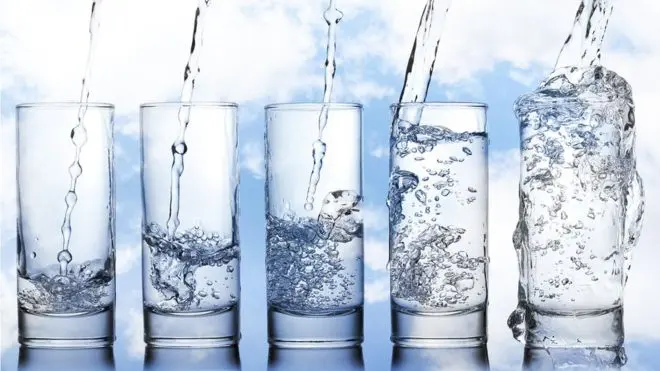We all need lots of water everyday…!!
- Almost a third of the population will have some type of voice disorder across their life span.More specifically, professional voice users exhibit the highest prevalence of voice disorders due to excessive voice demands.A voice disorder can have negative effects on an individual and may adversely impact their quality of life in terms of occupational change or loss, social isolation or withdrawal, depression and/or a difficulty being understood by others.
- A targeted approach tailored to the specific needs of the client describes an approach for voice disorders and constitutes a diverse range of techniques which voice professionals implement to improve voice production and quality. One aspect often included is hygienic voice therapy, which focuses on eliminating and/or modifying phonotrauma. The most suggested method, however, is to improve vocal hygiene by increasing the amount of water you ingest.
A major study conducted by researchers over 10 years from 2007 to 2017….using persons aged 18 to 78, male and female investigated the effects on persons whose voice was dehydrated, if they were fasting or if they drank sufficient amounts of water everyday…the study looked at the dehydrated voice, the hydrated voice and the quality of the voice after rehydration in other words after drinking plenty of water.
- Hydration can be described as an adequate level of water in the body and dehydration as a lack of water. Hydration occurs at different levels in the body. The first, systemic hydration refers to general body hydration that keeps mucosal tissue healthy. This level of hydration is achieved by ingesting fluids, with the typical recommendation of eight glasses of water per day. The second level, refers to the moisture level that keeps the epithelial surface of the vocal folds healthy and pliable. Superficial hydration is accomplished by inhalation of humidified air, nebulization, and/or avoidance of drying environments.
- The role water plays within the body is therefore not only anatomical but also physiological by providing lubrication to tissues.The relationship between hydration, vocal physiology, and vocal quality is, however, not yet fully understood. It is, however, believed that during collision of the folds during phonation, an interstitial transfer occurs that pushes fluid away from the area of vocal fold contact. As a result, increased stress gradients are formed. These stress gradients are exacerbated in dehydrated tissue.Frequent rehydration is thus required not only to maintain regular phonatory function, but also to prevent vocal fold lesions due to these stress gradients.
- A high degree of dehydration as a result of fasting and not ingesting fluids significantly affected the parameters of NHR, shimmer, jitter, maximum habitual pitch, the s/z ratio, VTI, phonatory effort, and the grade of hoarseness.
Its clear that drinking plenty of water daily if you use your voice a lot is critical….also a little caffeine does not negatively impact your voice hydration…surprise!
What is not clear in research is what substances are proven to dehydrate your voice or how they affect the quality of your voice long term…but clearly the study proves that a well hydrated voice ensures that your voice retains its quality both anatomically and vocally.
So .. fellow voice users keep drinking water!!!
John Norton


